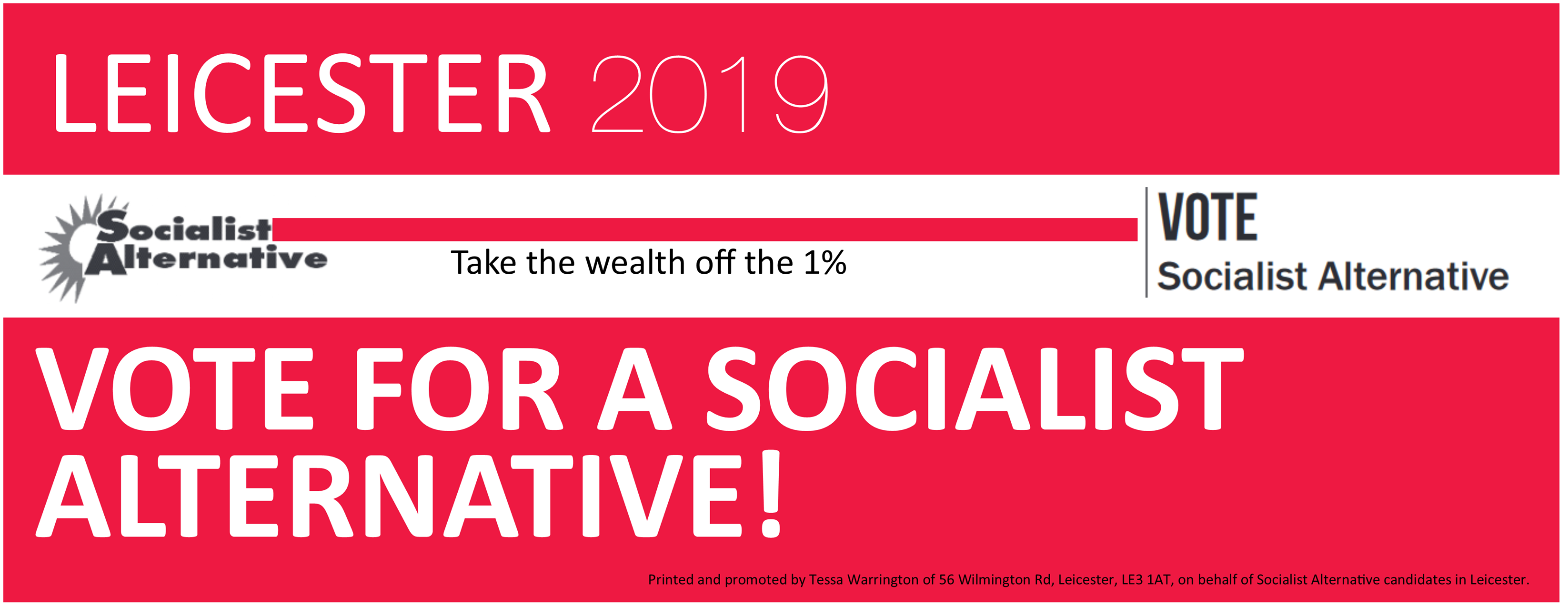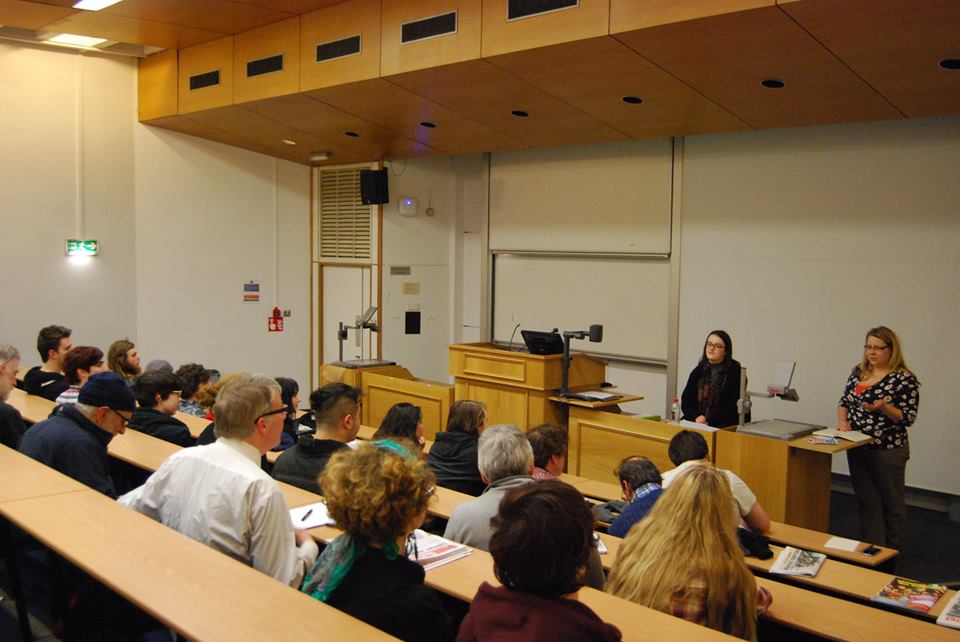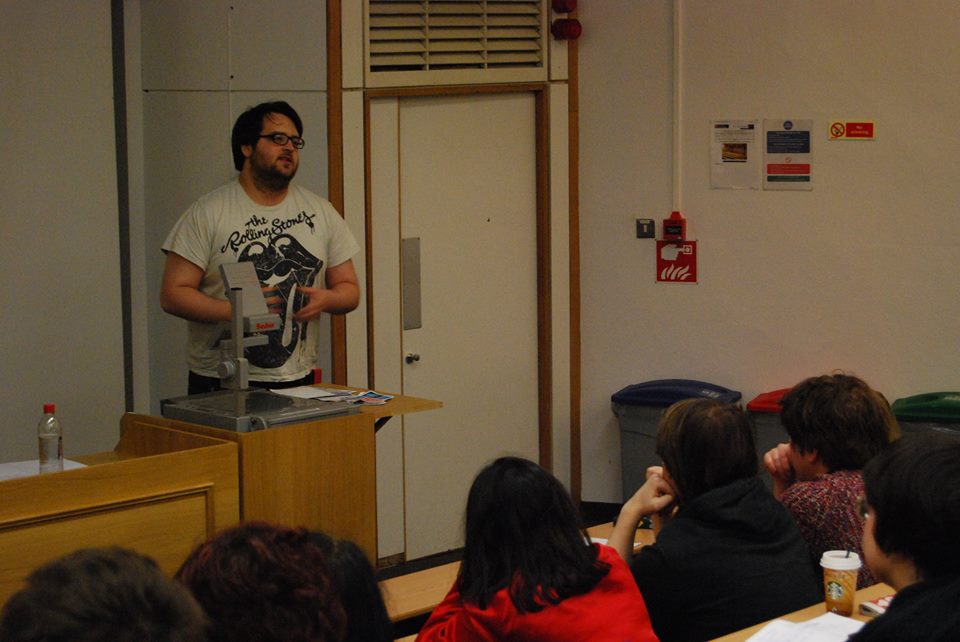Students Fight for the NHS
Leicester Socialist Students Society hosted a public meeting on Monday 8th February to discuss ongoing government attacks on emergency service workers, ahead of Wednesday’s planned strike action by the British Medical Association (BMA).
Guest speakers included Jeanna Strutinsky-Mason, a registrar in palliative medicine and a junior doctor at Leicester’s hospitals for the last seven years, and Matt Whale, a student nurse currently based at the University of Derby.
Dr Mason opened discussions by explaining how the Tory health secretary Jeremy Hunt, helped by the right wing media, has deliberately misled the public on the real reasons that the doctors will be out on strike. The dispute, Dr Mason argued, is rooted in contract changes which would see already over-stretched doctors working longer hours for less pay, thereby putting patient and staff health at risk.
For example, under Hunt’s proposed contract, anti-social working hours, currently 7pm to 7am Monday to Friday, will be redefined as 10pm to 7am Monday to Saturday. This means that 30 additional hours a week will be paid at a regular rate.
Although Hunt has offered an 11% increase to junior doctors’ basic pay, “banded pay”, which is the rate for antisocial hours, will go down by significantly more. In some cases, this will mean a loss of up to £7,000 in actual pay.
In addition to this, the proposed contract will remove the safeguards that prevent junior doctors working dangerously long hours. Thus, in order for junior doctors to maintain their existing rates of pay (currently beginning at £23,000) they will be forced to work longer hours. Given that junior doctors are already overworked this new contract, Dr Mason explained, is dangerous.
She states: there are “already gaps on the hospital rotas” because of a lack of staff. “People I know are seriously considering leaving the country [to work abroad] because of these contracts. Some are even considering dropping out of the profession altogether.”
However, government attacks on emergency service workers are not isolated to junior doctors, with new proposals that will see the removal of student nurse bursaries by 2017. Speaking on this subject, Matt Whale explained that the government proposals would see student nurses “saddled with over £50,000 worth of debt” through student loans.
Although this will no doubt sound familiar to most Higher Education students, student nurses are required to log “2,700 hours of practical work in hospitals.” This means that they will be forced to pay for their training despite the fact that they are providing a service.
Student fees should be opposed in general, but the removal of student nurse bursaries is particularly pernicious.
Furthermore, Mr Whale continued to explain that because the average age of a student nurse was 27, many already have families to support. Unsurprisingly, therefore, a recent UNISON report revealed that “nine in ten (91 per cent) student nurses would not have applied for the nursing degree without access to the bursary which the government intends to scrap.”
According to Mr Whale, deteriorating conditions in the NHS have their roots in the successive New Labour governments of the 1990s and 2000s, when Private Finance Initiatives (PFI) were first introduced to the running of NHS. (It is no coincidence that Margaret Thatcher considered New Labour to be her greatest achievement.)
PFI has meant that contracts, such as construction and services, have been opened up to private tender. One of the main consequences of this is that hospitals have been saddled with astronomical levels of debt. In some cases, Mr Whale notes, “more is spent on paying back interest than in running hospitals.”
Indeed, last year alone the Department of Health spent £1.2 billion bailing out debt-ridden trusts struggling to pay PFI bills.
Mr Whale also noted how the continued attacks on the NHS, both staff and infrastructure, are part of longer term plans: staff stretched beyond breaking point, hospital trusts up to their eyes in debt, chronic underfunding for those areas that do remain under national control… all of this will be used as evidence to prove that a publicly funded NHS is no longer viable.
However, both Dr Mason and Mr Whale were adamant that the demise of the NHS is far from inevitable, as indeed were most of the audience. As Health Minister Nye Bevan once said, “The NHS will last as long as there are folk left to fight for it.”
97% of junior doctors voted in favour of strike action in protest against the proposed contract changes. This is the first time in over 40 years that this decision has been taken, clearly demonstrating the huge anger and resentment. In solidarity with the junior doctors, student nurses will also be joining the picket lines for one hour from 10am.
Locally, a campaign has also gotten underway to prevent Queens Road Medical Centre becoming yet another victim of government cuts. Last Thursday some 250 people attended a public meeting as part of this growing campaign, see the “Save Queen’s Road Medical Centre” facebook group here.
Join the doctors and nurses on the picket lines; join the fight to save Queens Road Medical Centre; and join the struggle against government cuts. The NHS depends on it.




